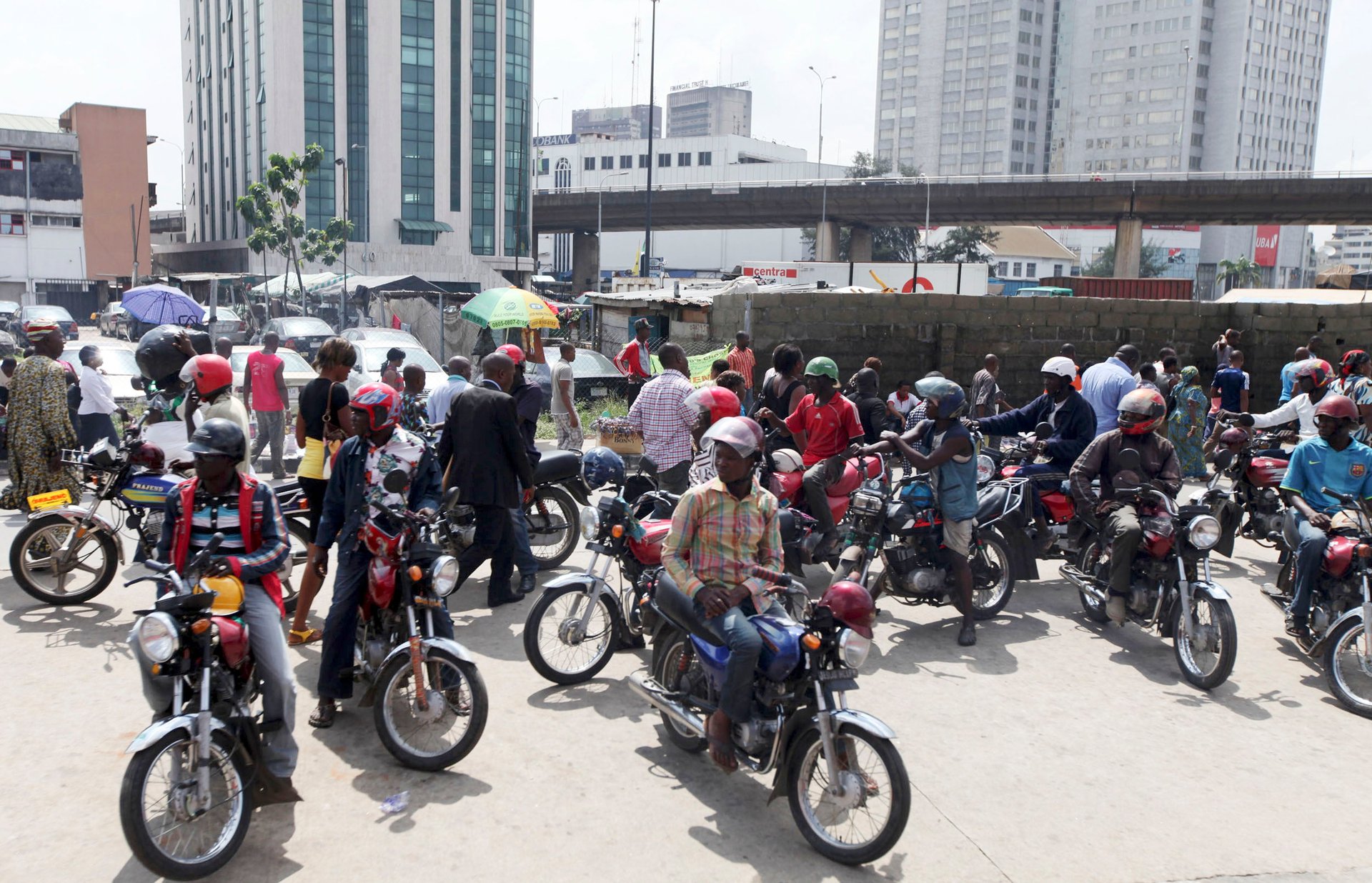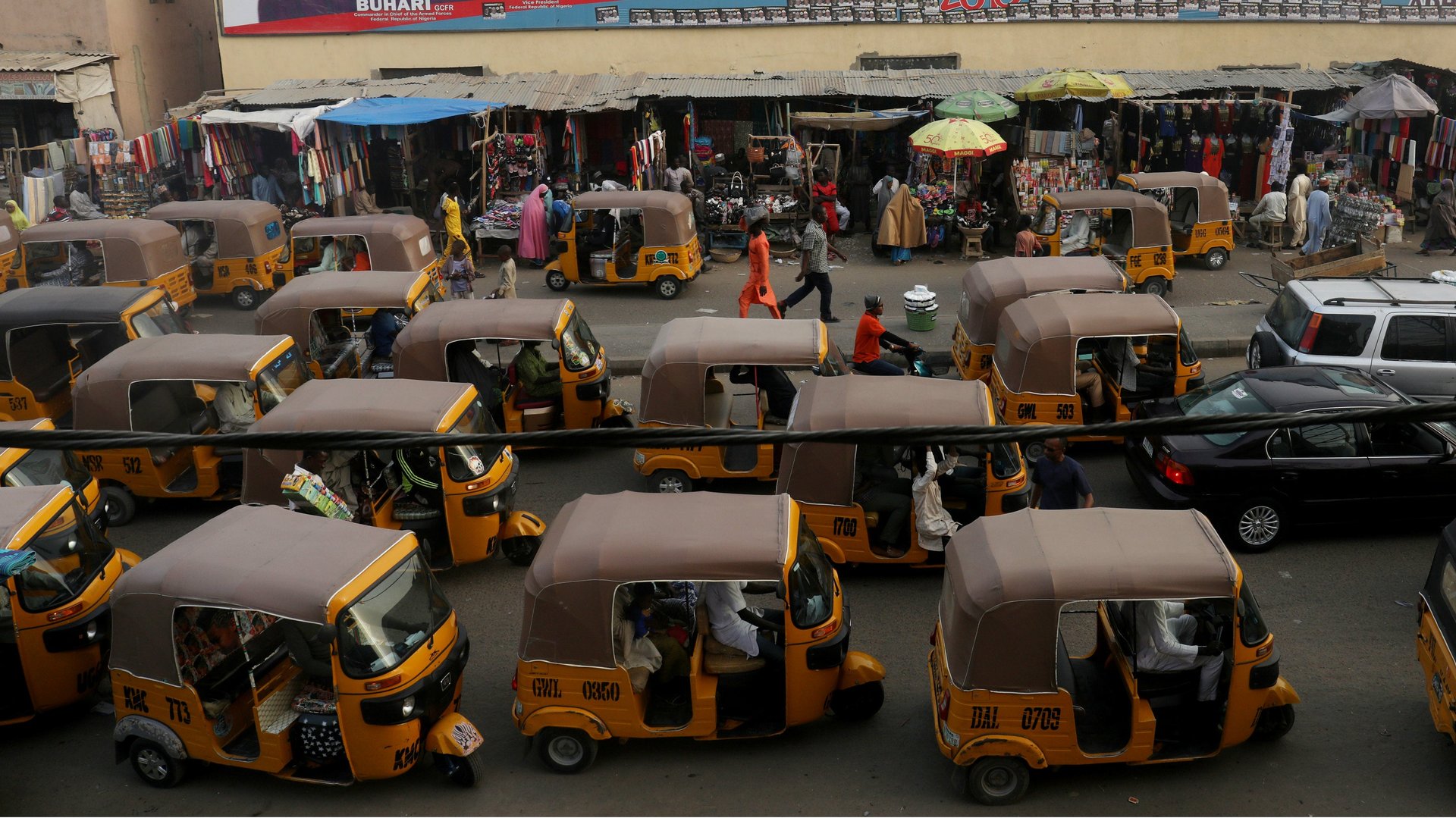Lagos has banned its most effective methods of transport—including bike-hailing startups
Getting around in Lagos, Africa’s largest mega-city, is notoriously difficult given the daily traffic jams and poorly maintained road networks. But it’s about to get even worse with new clampdown measures on some of the city’s most commonly used modes of transport.


Getting around in Lagos, Africa’s largest mega-city, is notoriously difficult given the daily traffic jams and poorly maintained road networks. But it’s about to get even worse with new clampdown measures on some of the city’s most commonly used modes of transport.
The state government has announced a ban on commercial motorcycles and tricycles in the city’s major residential and business hubs, including Ikeja, the state capital. While this is not the first ban on commercial bikes, known locally as okadas, this time, the state has also explicitly banned operations of motorcycle-hailing startups that have become ubiquitous over the past year.
Bike-hailing startups including Max.ng, Gokada and ORide (a subsidiary of Chinese-backed OPay superapp) offer a value proposition of being a safer option to usually chaotic okadas and a cheaper way to navigate through Lagos’ many traffic jams versus cars. They have also proven attractive to investors raising million of dollars in funding based on the prospect of bringing some order to Lagos’ notorious roads and then expanding elsewhere. The ban will come into effect on Feb. 1.
For its part, the state has defended the ban as necessary for security and safety especially as motorcycles and tricycles are known for a tendency to disregard traffic laws and involvement in accidents. But there’s a pretty obvious catch.
With the state-owned bus transit service (BRT) practically unable to cater to its residents’ transport needs, motorcycles and tricycles have filled in key gaps in and have become necessary features of the transport system in Lagos. Their utility is most evident in clusters of the city that are inaccessible by car due to poor planning and bad roads. The state government has claimed it will provide buses in the affected areas to ease the effects of the ban but those promises ring hollow with its BRT service already appearing ill-equipped with fewer buses and long wait times and queues at local bus terminals and stops.

The ban on bike-hailing startups also comes after a checkered relationship with state authorities amid regulatory uncertainty. Last July, the state government proposed regulation which would see each startup pay annual licensing fees of 25 million naira ($70,000) per 1,000 bikes and then 30,000 naira ($83) per bike after the first set of 1,000. In addition, the startups were also faced with paying 500 naira per bike ($1.38) daily in state-sanctioned levies to local transport unions after months of harassment.
A senior executive at one of the major bike-hailing startups suggests the ban on motorcycles and tricycles is part of the state’s grand design for a mega-city which is rooted in aesthetics rather than reality. “They have a master-plan, but okadas are not in it,” he says.
Sign up to the Quartz Africa Weekly Brief here for news and analysis on African business, tech and innovation in your inbox